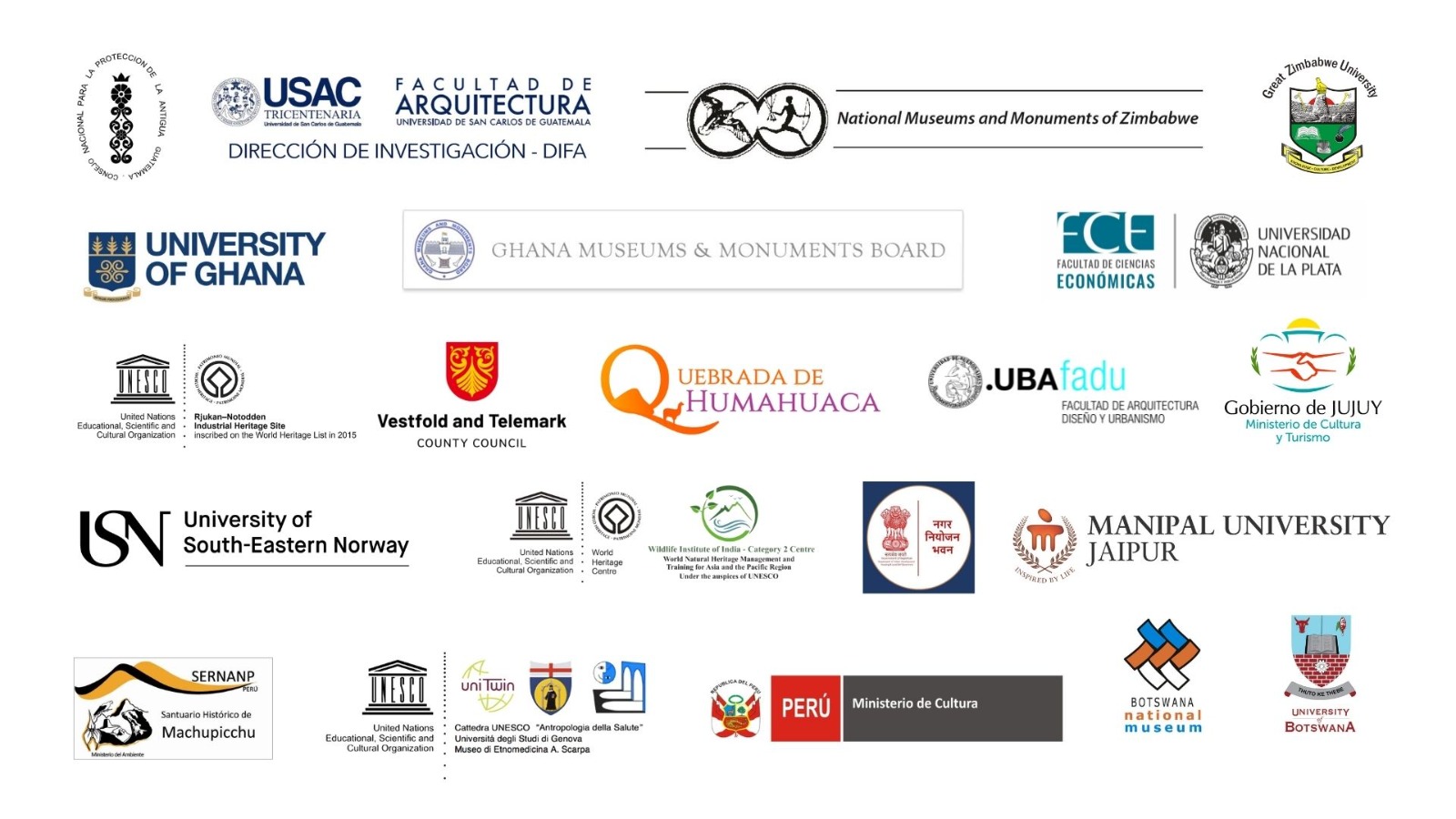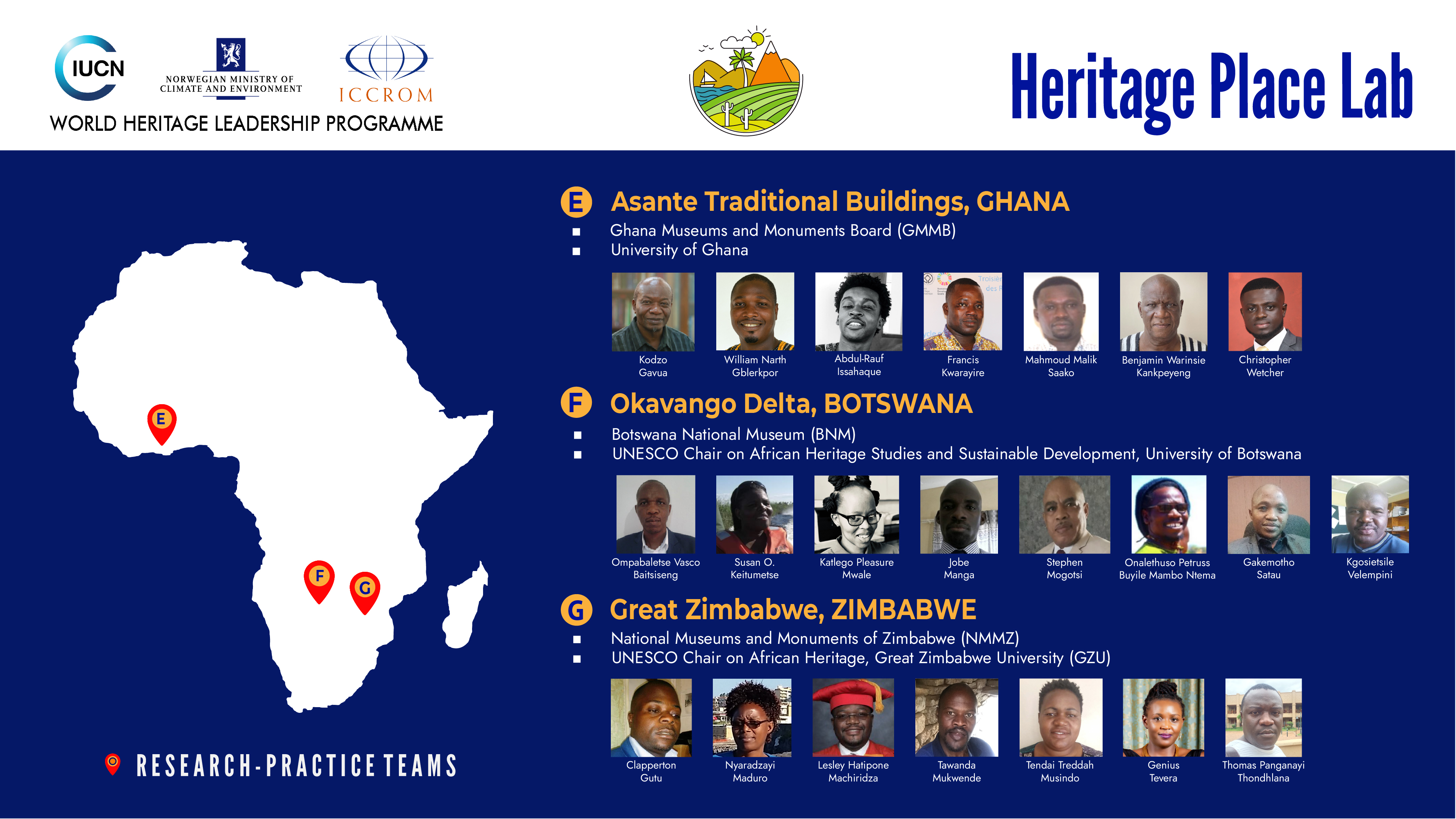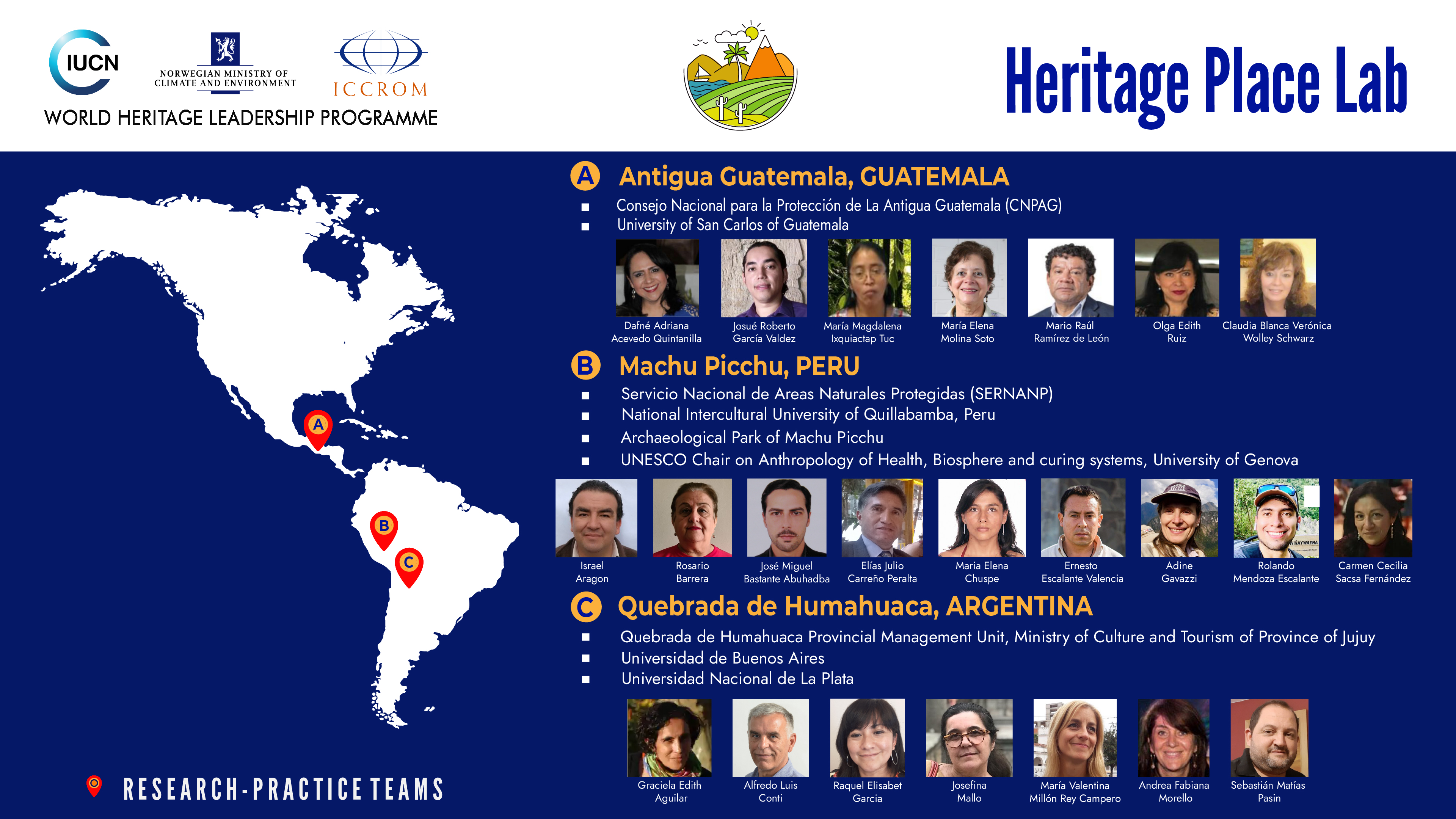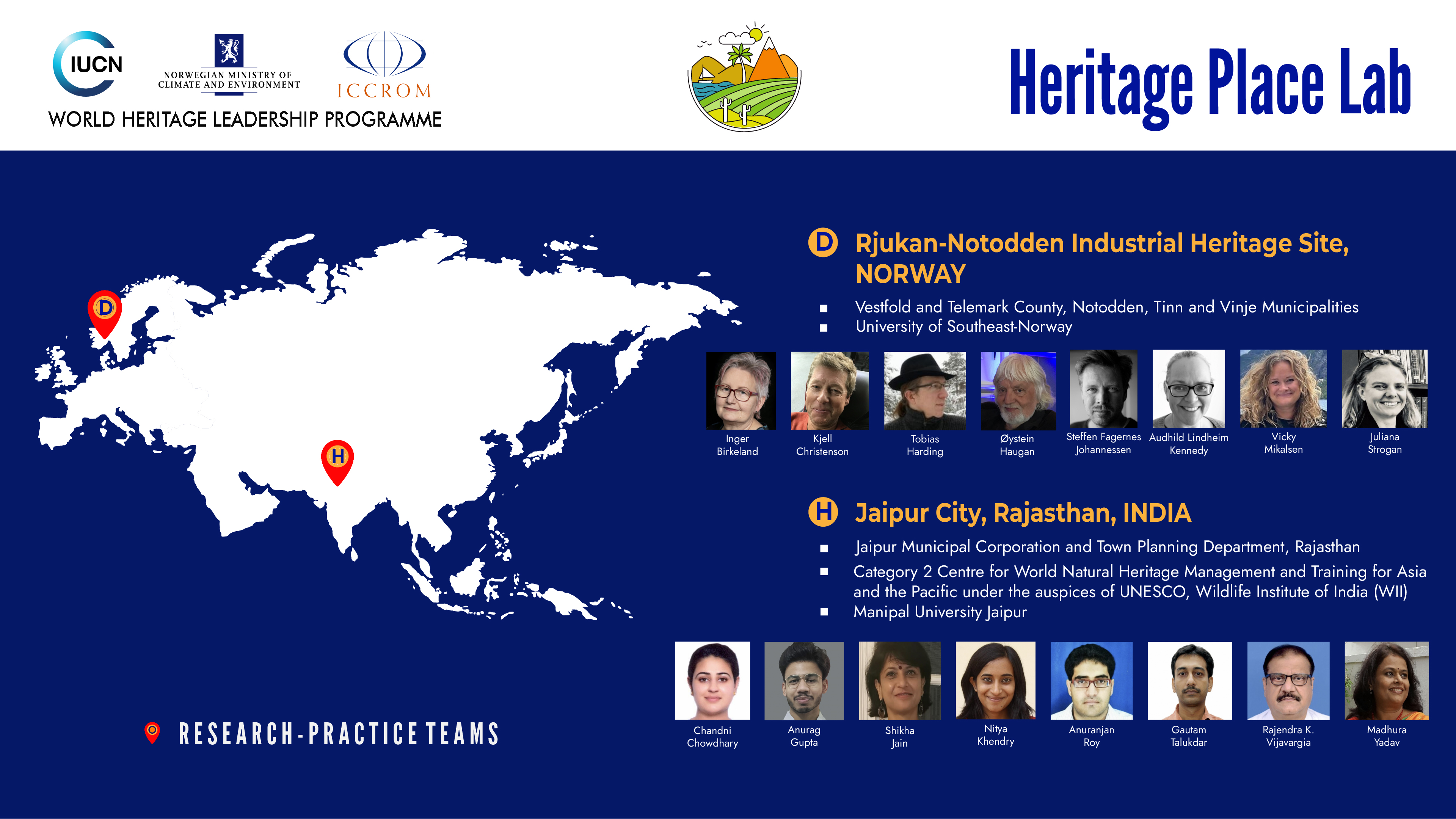




The World Heritage Leadership Programme (WHLP) released an open call for applications for Research-Practice Teams interested in working on World Heritage management issues collaboratively in the experimental Heritage Place Lab. The Research-Practice Teams had to be composed of a group of researchers (2-4), and a group of site managers (2-4). The research group could include faculty members, post-doctoral and graduate students, based in one or more research institutions, covering cultural heritage and/or natural heritage fields. The group of site managers could include 2-4 members involved in the management of one World Heritage property, which could belong to one or more institutions (managing authorities, municipality, community among others), and who were part of the World Heritage site management system. The WHLP encouraged Research-Practice Teams to work cross-regionally and in multi and interdisciplinary groups, including considering gender and intergenerational balance as priorities. Research-Practice Teams had to commit to working together for the duration of the Heritage Place Lab pilot phase and its follow-up activities, (including in between the 6 incubator online workshops).
- Existing World Heritage research and practice networks, particularly those connected to the WHLP, including those of Advisory Bodies to the World Heritage Convention: UNESCO Chairs, Universities Fora, ICOMOS International Scientific Committees, IUCN Commissions and Specialists Groups, and initiatives, like the ICOMOS-IUCN Connecting Practice Project, and the World Heritage Site Managers Forum;
- Interest in applied research by site managers and researchers;
- Interest of heritage practitioners to connect intersectorally and internationally.
In the process of calling and consultations with potential Research-Practice Teams it became evident that the commitment to such a project would require:
- Institutional support from the side of research institutions and management authorities;
- Potential financial support for ensuring the commitment of both groups in a Team;
- Produce special incentives for researchers beyond financial, such as scientific publications;
- Produce concrete results that would be useful for the management authorities, such as the development of a research agenda that could be used in conjunction with management plans.